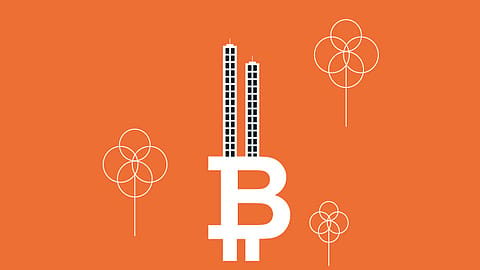Cryptocurrency logjam: What are India’s options?
As cryptocurrencies grow, differentiate them from digital currencies, devise robust regulatory mechanisms.

In an environment where over 50% of all payments are taking place digitally, the modernisation of the global payments system is inevitable due to several reasons, including the need for financial inclusion, payments stability and efficiency. Cryptocurrencies are based on block-chain technology, which is like a new protocol in the digital economy, analogous to TCP/IP for the Internet economy. Block-chain technology maintains the entire trail but carries the risk of hacking and unauthorised access to money. This is an evolving story, hence neither a full ban nor unhindered access can be accepted for a system that has such monetary ramifications.
Cryptocurrencies currently attract high trading fees of around 37%. They are not backed by liquidity up to the extent of 36%, and the lack of crypto pairs up to the extent of 22% adds to the volatility in crypto. Crypto- currency exchanges are third parties that offer storage of coins through hot wallets that are secure and online (being online, the fear of hacking persists). This wallet is not FDIC-insured like money in the bank. (In India, it is only up to ₹5 lakh)
Another concern is that cryptocurrency crimes have increased 312% per year on average since 2016. This includes everything from hackers stealing investors’ coins to people falling for scams-related to crypto investing.
In its current avatar, crypto carries security risk and market risk, no mechanism for inheritance, lacks clear government regulation, and no financial stability as it is speculative in nature. Many cryptocurrencies are entering the regulated banking zone by lending to allow to earn interest.
Thus, the options for India, where youth and women are adopting crypto in a big way, are:
An outright ban: But the Supreme Court direction is clear that crypto cannot be termed illegal on grounds that a ban is not proportionate to the fear of the damage it may cost. The debate is that the government has exclusive rights to legislate subject to limits of legality, necessity and proportionality norms of our constitution. Therefore, in March 2020 the Supreme Court struck down an RBI notification, imposing a blanket ban not as per proportionality. In August, the Madras High Court struck down legislation that introduced a blanket ban.
Regulators in China, Bolivia, Nepal, North Macedonia, and Indonesia have articulated the fear of a threat to the integrity of their financial systems from cryptocurrencies as these are unregulated and enable illicit transactions. However, the Madras High Court and the Supreme Court have made their stand clear – cryptocurrencies cannot be termed illegal and, therefore, banned.
Introduce some degree of regulation — protection to investor: This cannot be more than what is there in the case of bank deposits (up to ₹5 lakh). The US, the UK, and the European Union are contemplating some form of regulation of cryptocurrencies and compliance regimes for them. They also seek clarity on the legality of the transaction process. The RBI is also contemplating these aspects.
Adopt it as legal tender: Bypass sanctions and adopt Bitcoin as legal tender, as done by Cuba, El Salvador, and Iran — encourage mining provided tokens are sold to the central bank — now using less electricity. El Salvador has witnessed street protests against high energy consumption by cryptocurrency miners.
India is approaching the matter cautiously as is reflected in the inter-ministerial report and RBI circulars, which hint at discouraging cryptocurrency trade, warning investors of associated risks. ‘Think it through’ seems to be our guiding principle. Cryptocurrencies will take coordinated global effort to wipe out. Hence, banning is not an option and the only option is to work out legislation along with a nuanced framework to manage this popular instrument.
Views expressed are personal. The writer is a Development Economist and a former Secretary to the Government of India.
(INR CR)